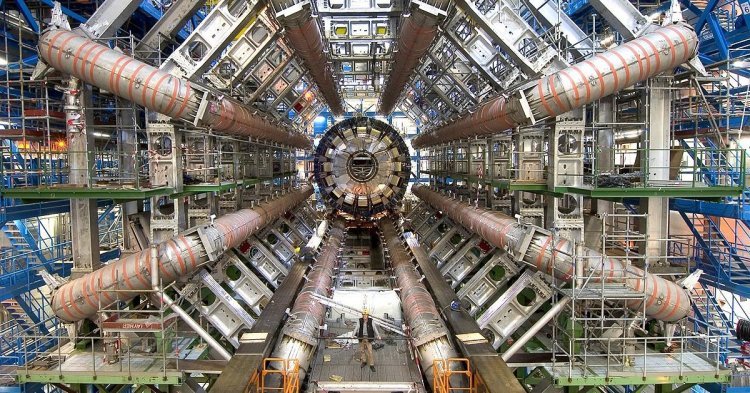This “brain drain” threatened to set European science back for decades. To stop the situation, particularly acute in the field of nuclear physics (where the new American and Soviet superpowers were the most apt to acquire European know-how), several countries came together to create the European Council for Nuclear Research, the now globally famous CERN. This institution not only saved European nuclear and particle physics from irrelevance, but also brought Europe to global leadership in those fields.
Today, Europe faces a very similar problem to that of the post-War years. European science is falling behind in key fields and technologies such as AI research and gene editing (CRISPR). This is mainly due to a lack of venture capital to propel start-ups compared to the USA; to the rise of China as an R&D global power; and to academic careers’ lack of competitiveness vis-à-vis private businesses in terms of salary and working conditions. Brought together, these factors lead to many young European scientists emigrating (mainly to the USA) to seek better opportunities and salaries.
The EU needs to follow the spirit of CERN
Though alarms are being raised in academic and political circles alike and plans are being drawn, much more needs to be done to tackle this problem. The impact that these frontier technologies could have upon society is immense, both in economic and moral aspects.
While the situation is not (yet) as critical as it was in the 1950s when CERN was created, we need equally bold and decisive actions along the same lines to halt this brain drain. The European Union should act to create institutions, in the same vein and spirit as CERN, to protect and encourage European science in those fields likely to be key in the future: artificial intelligence, gene editing, quantum information and communications, and so on.
These new research hubs should act as CERN does, uniting and coordinating European scientists in their research. Like CERN, they should keep teams of researchers on-site, but work mainly by collaborating with “member” scientists from universities and research centres across the EU, facilitating contact and cross-work. As with the CERN model, they would be open to the collaboration of non-EU countries, in different modalities of membership and association.
But unlike CERN, these institutions would also work closely with businesses and public institutions to ensure technological transfer and innovation for our companies and governments. They should also act as points of concentration of capital (both public and private), to stimulate the creation of tech and science start-ups around them and to foster Research & Development spending in established companies, providing an environment that encourages innovation and technological advancement.
Strengthen Europe’s cohesion and global influence
Leadership in these fields is key to Europe not only because of their economic value, but because they pose important ethical and moral problems (designer babies, use of AI by governments, etc.) that must not be dismissed. Much as with nuclear weapons and the Non-Proliferation Treaty (where only the commitment of the nuclear powers lead to its signing), Europeans need a seat at the table if we are to impose our rules, values, and standards on the rest of the world.
If Europe falls behind this new technological race, we could soon find ourselves in a world where it is China and the USA who not only have the advantage in those fields, but who also make the rules and set the “rights” and “wrongs” of their uses. As with GDPR, Europe can and must set the global rules that ensure a fair, democratic and ethical use of these technologies. To do that, we need to be in a position that gives us the required leverage.
Furthermore, the creation of these new scientific institutions could be a good opportunity for improving the EU’s internal cohesion. European institutions, and especially scientific institutions, are mainly clustered in Western Europe. CERN is in Geneva (Switzerland), while the European Space Agency’s main sites are spread over the original EEC members plus Spain and the United Kingdom.
Creating new EU-integrated science initiatives like these would therefore be an unrivalled opportunity to spread European scientific collaboration throughout the rest of the continent, namely Eastern and Southern Europe. This would not only improve territorial cohesion and economic convergence, but could also play to local expertise and strengths. Estonia, for example, is famous for its e-Estonia initiative of digital governance, and already hosts the NATO Cyber Defence Centre of Excellence. It would be an ideal location for an AI- or cyber security-focused European tech hub.
As the technological race between world powers grows fiercer, the EU must not hesitate in launching much-needed initiatives to protect and revitalise our leadership in these strategic fields. As the new European Parliament term is at its start, and the new Multi-Annual Financial Framework will be signed shortly, it is a key moment for European industry, academics and policy-makers to come together and make a solution happen. Both our future economic prosperity and our values could be at stake.





Follow the comments: |
|
